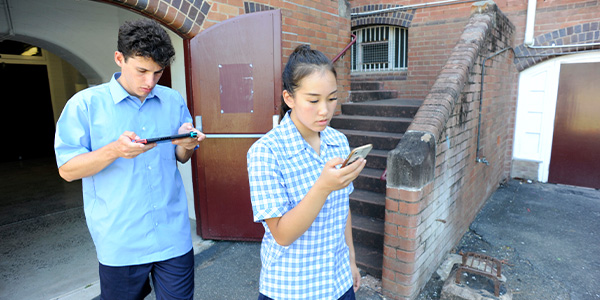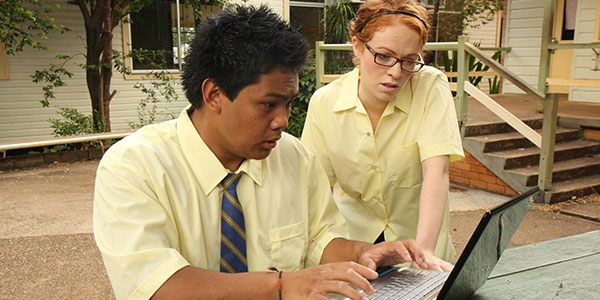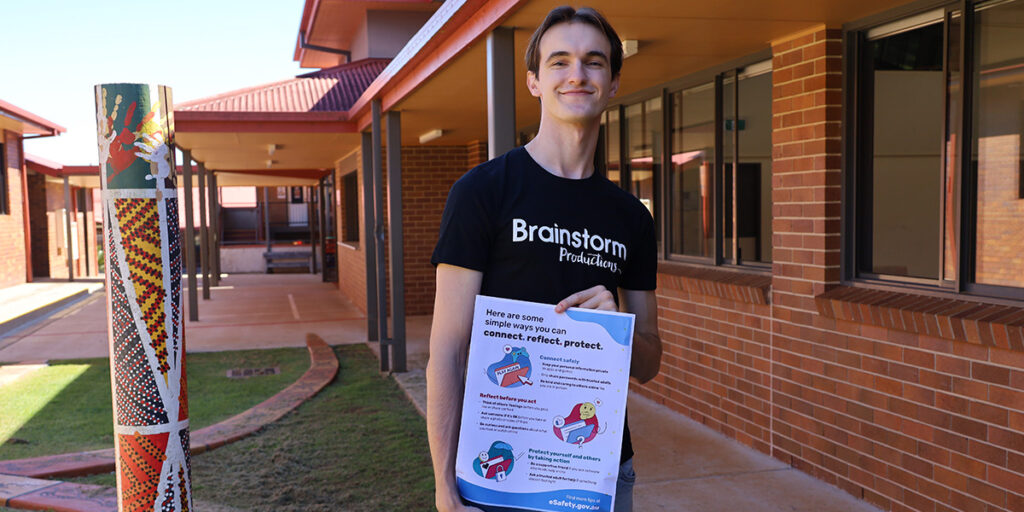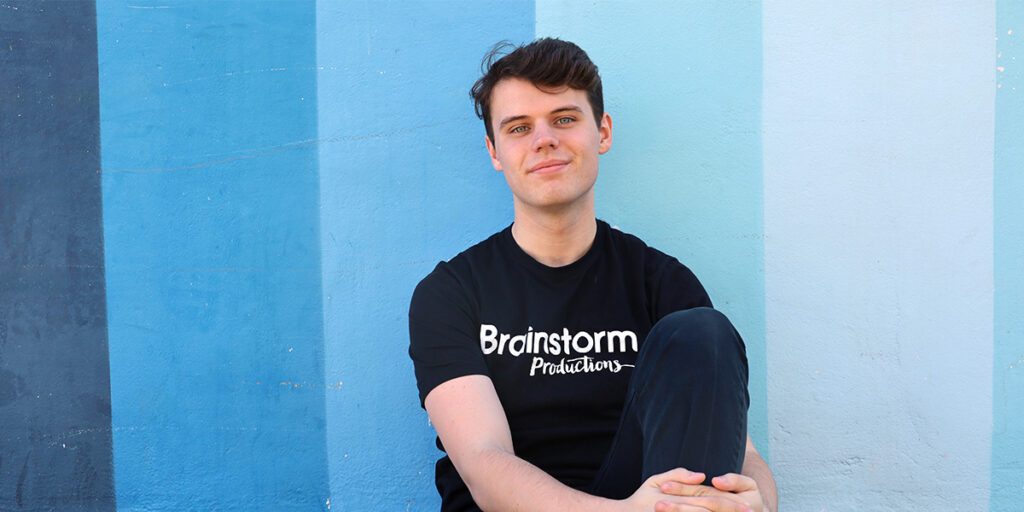Our privacy is valuable. And so is our kids’. Here’s how to protect it.
Whether we like it or not, devices, apps, games, and social media are a big part of life for most kids. Despite age restrictions, more and more children are logging on to platforms before they turn 13.
This is not all bad. Time online can offer creativity and connection, but it can also bring risk.
There are positives signs that we – and our kids – are getting better at understanding the consequences of sharing our personal information online.
But, advances in technology continue to present new risks to our privacy and security. Spam, scams, identity theft, and fraud are just some of the issues we – and our kids – face when we use devices.
Privacy Awareness Week is an annual event run by the Office of the Australian Information Commissioner (OAIC). It’s an opportunity to reflect on how we share and manage our personal data. The aim is to shine a spotlight on the issue of privacy, and to remind us – and kids – that privacy matters.
So how do we keep our kids safe online?
Protecting the privacy of children and teens online
Whether we like it or not, devices, apps, games and social media are a big part of life for most kids. And despite the age restrictions, more and more children are logging on to platforms before the age of 13.
According to a recent article in The Atlantic, the “kid internet” provides children, parents and educators with so many creative and connective possibilities; however, the major platforms are not doing enough to protect children in this growing online space.
Contrary to popular belief, kids do care about their privacy. But they need support and guidance from trusted adults to help them make good decisions and stay safe.
Below are seven tips to help parents, teachers and caregivers protect the privacy of young people online.
1. Start conversations about privacy
It’s important for cyber safety education to start early. By initiating conversations from a young age, we send the message that privacy is important.
Let kids know they have a right to privacy and there are laws in place to protect it. Discuss the reasons for age restrictions and explain risks in an age-appropriate way.
Ask kids what they are worried about when it comes to privacy. Identify areas where they need more knowledge or support.
Cyber safety programs in schools can help start a dialogue about privacy in the classroom, the playground and at home.
2. ENCOURAGE KIDS TO THINK BEFORE THEY SHARE
Kids may feel pressure to share their thoughts, feelings, and images on social media. And, they may be asked to provide personal details in order to access games and apps.

Discuss the idea that personal information has value, just like money. Encourage kids to be selective about the information they give away, and only provide details that are absolutely necessary.
Remind them that posts can be shared without their knowledge, so they should be careful about what they disclose online, even to friends.
Most kids are aware of the concept of a ‘digital footprint’. Remind them that, even though they may feel comfortable sharing something now, this could change in the future.
Teach simple skills, like taking three deep breaths or counting to 10, as a habit for building in a pause before sharing personal details.
Encourage kids to know that, if they ever feel unsure about whether to share information, they should ask an adult.
Kids – and adults – need to be aware of scams that are designed to steal our money, passwords or identities. A great question to encourage kids to ask is: “Is this for real?”. And, if something looks too good to be true, it probably isn’t a great idea to get involved.
3. Update privacy settings
Kids should know how to change privacy settings to control who can access their personal information. Privacy settings can be tailored according to their age, the platform they are using and the type of information they are sharing.
Some apps like Snapchat, for example, have settings that allow users to see the current locations of their friends. This can put children at serious risk, so it is important to know how to turn location services off.
Platforms and apps are constantly updated and new ones are quick to rise in popularity and use. That’s why we recommend regularly checking in on privacy setting information from the Office of the eSafety Commissioner.
4. READ THOSE PRIVACY POLICIES
The truth is that most of us don’t read privacy policies and collection notices. After all, most terms and conditions are lengthy and confusing, so it’s much easier to just click ‘Agree’

However, these notices contain important information about privacy rights. So, it’s really important to read them so you understand how the information being collected will be used and protected.
Involve kids in this process, so they understand what they are giving up when they click ‘I agree’. One idea is to summarise each point in plain English, just like a privacy lawyer did for Instagram’s terms of use.
5. Manage passwords
Strong, secure passwords are an essential tool in maintaining your privacy. Passwords should be a random combination of numbers, letters and punctuation. They should never include personal information such as birthdates or names.
Passwords should be changed regularly and not used across multiple accounts. Using a password manager is a good way to keep a secure record of all your passwords.
Explain to children and teens that they must not share passwords with anyone, especially at school or online. (It is, of course, appropriate for parents to know their children’s passwords so that they can monitor online behaviour and keep them safe).
6. Encourage respectful online behaviour
Privacy awareness is about your rights … and your responsibility.
Protecting the privacy of others is a responsibility for everyone who goes online. Sharing others’ personal details can have a negative impact on them and you.

Encourage kids to act with empathy, compassion, and respect, just as they would in face-to-face interactions. Before posting something, we should all stop and ask: Is this information private? Is it sensitive? Is it necessary to share it?
Schools need permission before posting students’ personal details and images. Parents should also stop and think before sharing information about themselves and their children. It’s no surprise that kids will be more likely to take messages about privacy seriously if adults around them model good behaviour too.
7. WHAT TO DO IF SOMETHING GOES WRONG
Following the tips above will minimise the chance of things going wrong online, but there are never guarantees.
Let kids know that there’s always help available if something goes wrong.

If they have any concerns, from being targeted by a scam to sharing something they regret, the first step is to tell a trusted adult. Then, together, you can seek solutions, including from these trusted services:
- The Office of the eSafety Commissioner provides cyber safety information for children, adolescents and adults. They have a complaints and reporting service, which not only responds to complaints of cyberbullying and inappropriate content, but also helps people remove content that has been shared without their consent.
- The Australian Cyber Security Centre is another government organisation providing simple information.
- In cases of scamming or identity theft, Scamwatchand IDCare provide information and support.
- The Office of the Australian Information Commissioner provides advice to the public about managing privacy concerns, including helpful tips for parents and carers.
HOW CAN BRAINSTORM PRODUCTIONS HELP KEEP KIDS SAFE ONLINE?
Brainstorm Productions uses theatre, storytelling, and post-performance discussion to provide high-quality internet safety education to schools across Australia.
We explore a range of issues relevant to the privacy of students, including sharing passwords, digital footprints, and internet scams. Our cyber safety programs encourage students to think about their privacy and take meaningful steps to protect it, backed up by classroom resources.
We take our responsibility as cyber safety educators very seriously. We know how important it is to get our information from the right sources so Brainstorm is a supporting partner of Stay Smart Online and one of the eSafety Commissioner’s certified providers.
Article Updated on 30/04/2021




